At the beginning of each year, we begin to tally up the damage from the yearly flu season. While not yet over, we can already get a good sense for how badly this most recent flu season hit the United States. At least 14,000 people have died and 250,000 have already been hospitalized during the 2019-2020 flu season, according to estimates from the U.S. Centers for Disease Control and Prevention.
Towards the end of last year, and with alarming speed early this year, a new player has emerged on the viral pathogen scene: the novel Coronavirus, or COVID-19. This virus is part of a family of viruses that have a distinct pattern when viewed microscopically that appears like a crown, hence “corona” (Latin for "Crown") virus. There are currently seven forms that are known to affect humans, and they include the SARS (Severe Acute Respiratory Syndrome) virus that appeared in China in 2002.
Symptoms of this infection can be very similar to cold or flu. This nasty bug however, appears to be more infectious (easier to spread) and more lethal (higher death rates). COVID-19 binds to cells in the human body much more aggressively, similarly to the way HIV does, and so it may be up to 1,000 times more infectious than SARS. This is why countries such as China, Italy, and Spain have been put on lockdown, and why we have taken significant public health measures in our country to help curtail the spread.
As you can see from news reports, this virus is having a profound effect upon how we live our daily lives in this country. Many experts anticipate that the situation will worsen, and it is possible that restrictions placed upon US citizens will more closely mirror those in Italy in the near future. The way for all of us to help during this crisis is to minimize our chances of being infected or spreading the disease to others.
Keeping yourself safe:
If you don’t encounter this virus, you won’t get sick from it. It is that straightforward, but not entirely simple. Staying away from anyone who is sick (social distancing) is a major component. We recommend following guidelines from the CDC:
https://www.cdc.gov/coronavirus/2019-ncov/prepare/prevention.html
Bolstering your immune system:
A proper diet is paramount to a healthy immune system.
In addition, certain vitamins and supplements are known to support the immune system in general. These include, but are not limited to:
Selenium (200 mcgm/day)
Deficiencies in the micro-nutrient selenium can lead to a higher degree of mutation of virus when contacted, as well as greater susceptibility to tissue damage.*
Vitamin D (Vitamin D3- 4,000-5,000 IU/day)
A review of several large studies showed that supplemental vitamin D decreased the likelihood of acquiring a respiratory infection by up to 50%, with the effect being most pronounced in those people who had lower levels of Vitamin D.*
Zinc (10-15 mg/day)
Zinc (especially lozenges) may decrease the duration of the common cold.*Zinc is an important micronutrient for supporting immune system function.*
Vitamin B6 (10 mg/day)
Vitamin B6 is a vital nutrient essential for a huge number of enzymatic reactions in the body.*
Evidence suggests that supplementing with Vitamin B6 may improve immune function, especially in older individuals.*
Vitamin C (1,000 mg/day)
Taken daily in doses above what you would get from your diet, Vitamin C may help reduce the likelihood of getting a cold.* The effect is most pronounced in people who are very active (runners, athletes etc). While no specific dose is set, we recommend a minimum of 100 mg/day, but prefer 1,000 mg/day.
Mushrooms (No Established Dosage)
Several species of mushrooms have been shown to have a wide variety of health benefits, especially in boosting immune system function which may help with decreasing the likelihood of getting a viral infection, such as the flu.*
Turmeric (No Established Dosage)
The active ingredient in Turmeric, curcumin, can help improve the body's antibody response, even at lower doses.*
CoQ10 (100 mg/day)
Coenzyme Q10 is one of the most critical nutrients in the body, and plays a crucial role in supporting cell function.
Deficiency in CoQ10 can cause dysfunction in Natural Killers Cells - Immune cells that out bodies use to help fight viral infections.*
The common medication for lowering cholesterol, called statins, may deplete the body of this nutrient.*
Echinacea (No Established Dosage)
Studies indicate that when given at the very first symptom of a cold, echinacea may shorten the duration of a cold and lessen its severity.*
A Note on forms and dosage
It is very important to get the optimal dosages and forms of the nutrients above. However, most of the dosages and forms contained in standard one-a-day multivitamins do not have effective dosages.* Most of these are hard tablets that are not easily absorbed by our bodies. To enable optimal absorption, I recommend taking vitamins and supplements in capsule or powder form.*
I believe that an ideal regimen for you to take year-round, but especially during cold and flu season, would be:
- Nature’s Lab Six Daily: 2 capsules three times a day
- Nature’s Lab Super Vitamin C: 1 capsule three times per day
- Nature’s Lab Turmeric extract: 2 capsules daily
An alternative would be to replace Six Daily with Nature’s Lab One Daily, although some of the additional benefits of a more comprehensive supplement would be absent.
At Nature's Lab, it is our sincere hope that you remain healthy and safe during these trying times and are here to offer our support. We encourage everyone to work together to help combat this crisis and stay healthy.
About Dr. John J. Walker
Dr. John Walker is a gastroenterologist by training and the former Chief Medical Officer for Cornerstone Health Care, High Point, NC. While in practice, he incorporated nutritional and natural therapies with his conventional approach to assist his patients with digestive diseases. You can read more about Dr. Walker and his approach here.







